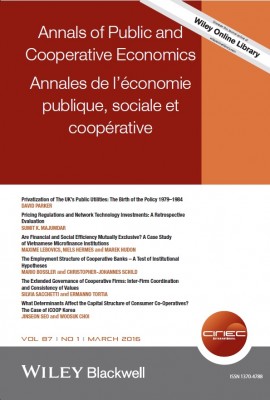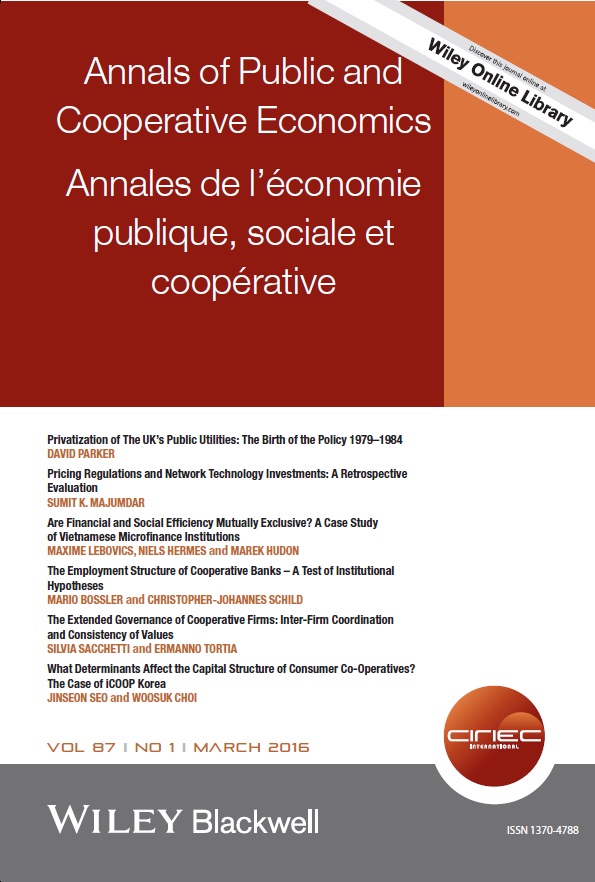The extended governance of cooperative firms: inter-firm coordination and consistency of values
The researchers, collaborators of Euricse, Silvia Sacchetti (Open University Business School, UK) and Ermanno Tortia (University of Trento, Italy) published an article in the most recent issue of “Annals of Public and Cooperative Economics” (Volume 87, Issue 1, 2016) entitled “The extended governance of cooperative firms: inter-firm coordination and consistency of values”.
 The article aims at providing a framework for the analysis of governance in networks of cooperative firms. It builds on four bodies of literature: cooperation, transaction costs, monopoly capitalism, production networks. The framework associates the specific principles that define the identity of cooperative organizations (self-help, member ownership, democratic control, financial participation, limited capital remuneration) alongside more general governance levels (embodied values, property rights, control, resource allocation). The authors then apply the same dimensions to production networks and propose a stylized networking model for cooperatives. They introduce market power, and identify two polarized types of networks: (1) heterarchical forms of coordination based on cooperation and mutual help, (2) hierarchical coordination based on exclusive direction. They then compare both types with their normative framework providing examples and brief case studies for each network type. Recommendations to scholars and practitioners point at the opportunity to discriminate inter-firm relations and production development strategy in terms of the values of cooperation, at all governance levels.
The article aims at providing a framework for the analysis of governance in networks of cooperative firms. It builds on four bodies of literature: cooperation, transaction costs, monopoly capitalism, production networks. The framework associates the specific principles that define the identity of cooperative organizations (self-help, member ownership, democratic control, financial participation, limited capital remuneration) alongside more general governance levels (embodied values, property rights, control, resource allocation). The authors then apply the same dimensions to production networks and propose a stylized networking model for cooperatives. They introduce market power, and identify two polarized types of networks: (1) heterarchical forms of coordination based on cooperation and mutual help, (2) hierarchical coordination based on exclusive direction. They then compare both types with their normative framework providing examples and brief case studies for each network type. Recommendations to scholars and practitioners point at the opportunity to discriminate inter-firm relations and production development strategy in terms of the values of cooperation, at all governance levels.
